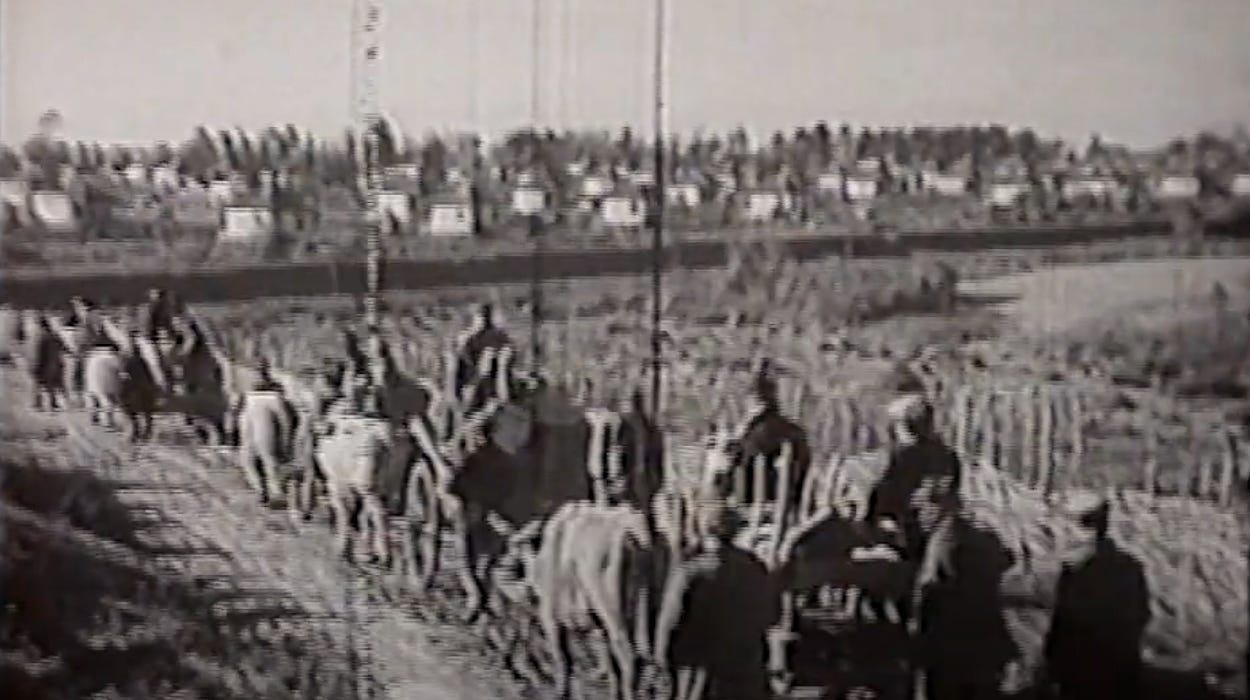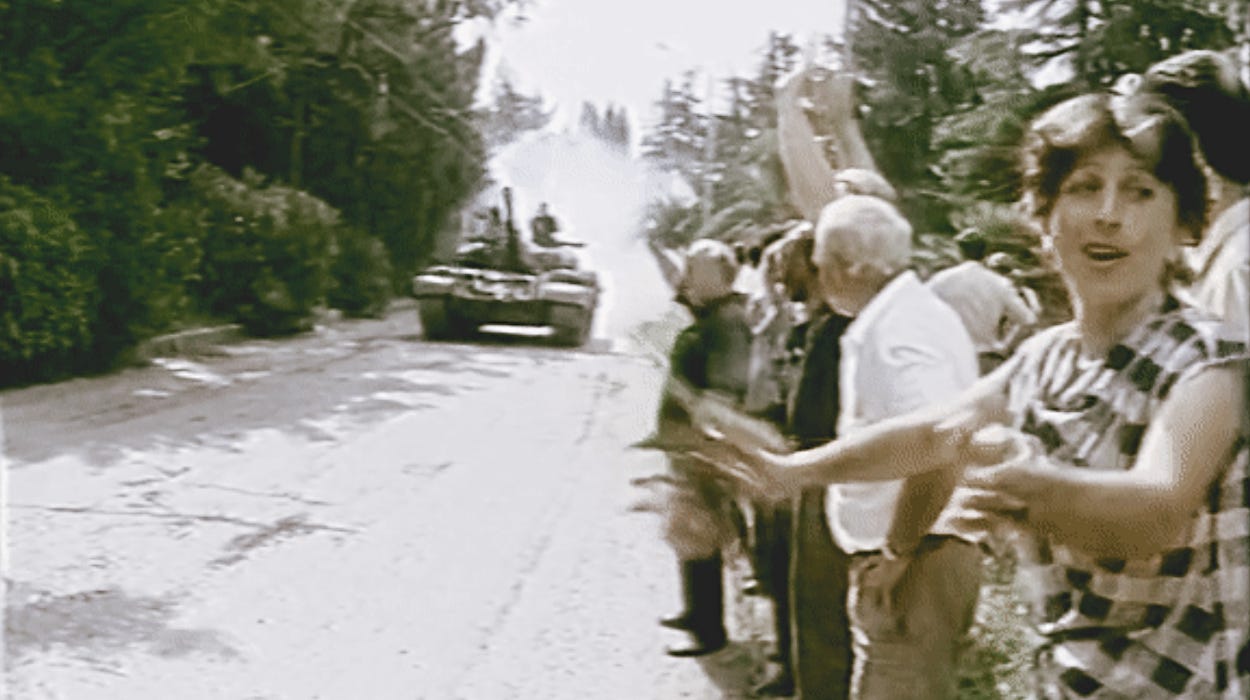Recent Updates on AW
Articles and Analyses on Abkhazia.
On the Demographic Expansion of Abkhazia (1937 - Mid-1950s), by Adgur E. Agrba
The Abkhaz population suffered significant losses due to the forced exiles following the Russo-Caucasus War in 1864 and the Russo-Turkish War of 1877-78. In 1864, after the Russo-Caucasian War, around 25,000 Abkhazians, mostly from the Sadz, Akhchipsy, Aibga, and Pskhu regions, were forced to leave. Major uprisings in Abkhazia occurred in 1821-27, 1840-45, 1861, 1866, and 1877, each leading to significant exiles of Abkhazians to the Ottoman Empire. The situation culminated in the Russo-Turkish War of 1877–1878. In total, approximately 135,000 Abkhazians, constituting most of the Abkhazian population, were deported. It was during this period that the colonisation of Abkhazia by Georgians, particularly Mingrelians, first began. This process intensified in the 1930s during the Stalin and Beria era, reaching its peak through a deliberate policy of forced resettlement and assimilation. Between 1937 and 1953, tens of thousands of peasants from Western Georgia were resettled in Abkhazia, shifting the ethno-demographic balance further against the Abkhaz and making the Abkhazians a minority in their own homeland.
The article, which examines this critical period of demographic expansion, was originally published in 'Аҧсуаҭҵаара' / Abkhaz Studies, no. 11, and has been translated from Russian to English.
Agrba, A. E. "On the Demographic Expansion of Abkhazia (1937 – Mid-1950s) (Towards Framing the Issue)." Аҧсуаҭҵаара / Abkhaz Studies, no. 11, 2018, pp. 90-96. Abkhaz Institute of Humanitarian Research Named after D.I. Gulia, Academy of Sciences of Abkhazia.
The Georgian Press on the Position of the Georgian Population of Abkhazia During the Georgian-Abkhazian War (1992–1993), by Daur Achugba
Achugba, Daur T.
Аҧсуаҭҵаара / Abkhaz Studies, no. 4, (2006), pp. 119–130.
Abkhaz Institute of Humanitarian Research Named after D.I. Gulia, Academy of Sciences of Abkhazia
From the very first days of the war, a segment of the Georgian population of Abkhazia, who had been diligently preparing for this moment, took up arms and stood alongside their compatriots from beyond the Ingur River in the fight against the Abkhaz "separatists". The first armed units formed from the local Georgian population were established even before the State Council of Georgia's troops entered Abkhazia, in the cities of Sukhum and Gagra. The Sukhum mechanised battalion, led by the notorious Soso Akhalaia, was stationed in the area of the Sukhum tourist base named after the XV Congress of the Komsomol (now the "Aitar" tourist hotel). According to Boris Kakubava, one of the leaders of the Georgian extremists in Abkhazia, a headquarters of the "Mkhedrioni" (The Mkhedrioni, founded by Jaba Ioseliani, was a Georgian nationalist terrorist organisation that existed from 1989 to 1995. ―Ed.) also operated in the republic's capital, which from the very first days organised an armed detachment and engaged in combat operations. He writes about this: "We decided that since what was bound to happen had happened, we should not lose the initiative: urgently enter Sukhum, surround the building of the Council of Ministers, and arrest the separatists. I, with a detachment of 45 Sukhum 'Mkhedrioni' members, was supposed to attack from Chanba Street, and the Abkhaz battalion, already positioned at the Red Bridge. We were expecting reinforcements from Lominadze and Akhalaia."
How Civic Organisations Are Visibly Transforming Abkhazia Despite Criticism
Civic organisations in Abkhazia have recently become targets of criticism and unfounded accusations from the current government—particularly during the tenure of former Foreign Minister Inal Ardzinba. Before, such scrutiny was uncommon, but now accusations often focus on claims that NGOs lack tangible results, while disinformation campaigns and "foreign agent" narratives gain traction. Despite these challenges, Abkhazian civil society continues to quietly improve social infrastructure and community well-being.
This article, originally published on the Abkhazian Telegram channel 'OKNO', has been translated from Russian.
In Response to Gabriel Chubinidze's Misleading Article on Prof. George Hewitt and AbkhazWorld.com, by Metin Sönmez (Kodzoko)
Gabriel Chubinidze, in his recent article on Civil.ge, expresses concern over Prof. George Hewitt being invited to participate in the International Kartvelological Congress IV, scheduled to take place on 25-27 September 2024 at the Georgian Academy of Sciences. The article is rife with inaccuracies and distortions, including the baseless claim that AbkhazWorld.com was founded by Prof. Hewitt. Chubinidze’s discomfort with Hewitt's inclusion seems to shape much of the article’s narrative.
Let's begin by quoting George Hewitt from the very letter that Chubinidze references—his 1989 open letter. Hewitt writes: "I believe I have earned the right to ask you not to forget the Georgian proverb ‘Criticise your friend to his face, your enemy behind his back’ as you read this letter."
It is well known that Georgian nationalists, like Chubinidze, rarely possess the courage to confront their targets directly. Instead, they choose to hide behind their pens and platforms, spewing ignorance with all the confidence that the Dunning-Kruger effect affords. Chubinidze is no exception, as he exemplifies this attitude throughout his poorly constructed article.
Abkhazia’s MFA Comments on Ivanishvili’s Apology Statement

The Ministry of Foreign Affairs of the Republic of Abkhazia has issued a response to a recent statement by Bidzina Ivanishvili, the founder of the "Georgian Dream" party. In his statement, Ivanishvili suggested that the Georgian authorities should "find the strength" to apologise for the actions of the previous government during the August 2008 war, which "engulfed Ossetian sisters and brothers in flames."
While this statement does not directly concern the Republic of Abkhazia, the Abkhazian MFA stressed that such a declaration, if followed by genuine steps towards reconciliation—including apologies to the peoples of South Ossetia and Abkhazia, and the signing of a peace agreement—could pave the way for peaceful coexistence and good-neighbourly relations.
The ministry also recalled significant moments in Georgia’s history, such as the 1956 condemnation of the actions of the Georgian leadership during the Stalin and Beria era, and Eduard Shevardnadze’s admission in 1978 of a "chauvinistic" policy towards Abkhazia. These events highlight a history of recognition of past mistakes by Georgian leaders, though concrete actions towards peace have often been lacking.
"On 27 June 1978, Eduard Shevardnadze, at the 11th plenum of the Central Committee of the Communist Party of Georgia, stated: “We must frankly acknowledge that in the past, during a known period, a policy was pursued towards the Abkhazian people which can only be described as chauvinistic. Let’s call it what it is. This policy fundamentally contradicted the interests of both the Georgian and Abkhazian peoples.” Regrettably, this did not stop Mr Shevardnadze from initiating a war in Abkhazia in 1992."
It is also worth noting that in 2007, a Georgian human rights group led by Ucha Nanuashvili launched the “Sorry” campaign, appealing to the Abkhaz people for forgiveness and calling for renewed dialogue and reconciliation; however, the campaign failed to gain widespread public support. Similarly, Ivanishvili’s recent statement has faced backlash from both the opposition and the public. His pre-election promise to apologise was heavily criticised by the opposition, who questioned the sincerity of his intentions and the timing of the statement.





